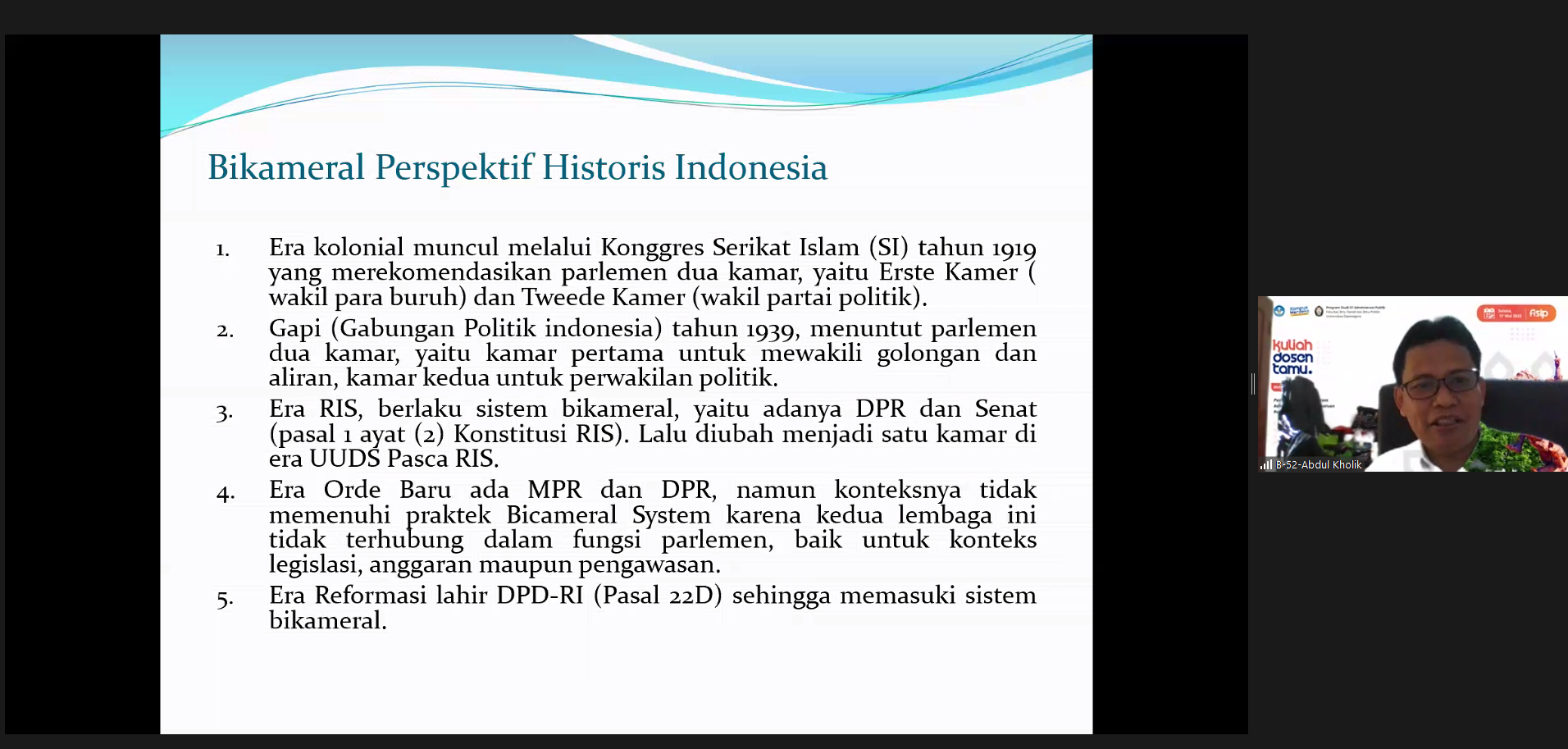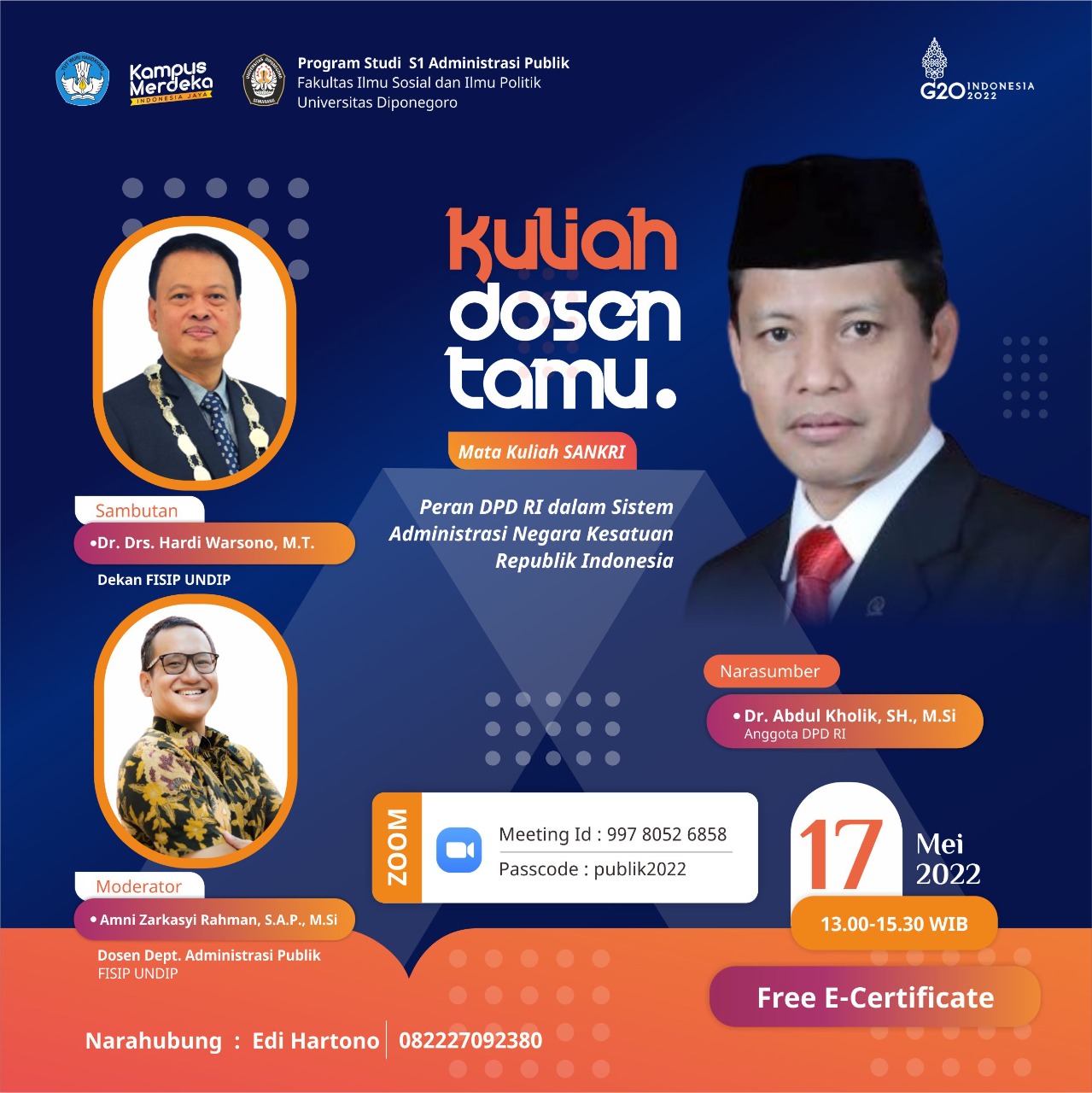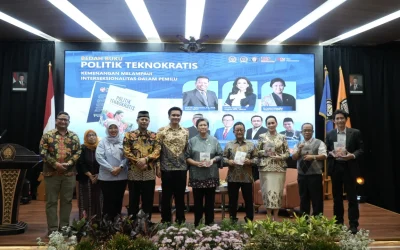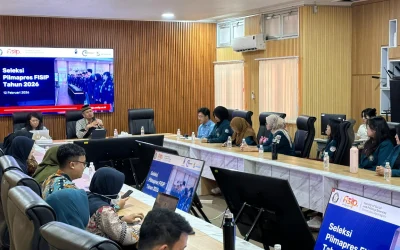The Dean of the Faculty of Social and Political Sciences, University Diponegoro, Dr. Drs. Hardi Warsono, M.T. welcomed the Undip Public Administration Undergraduate Public Administration’s Guest Lecturer with the topic of the Role of the Regional Representative Council of the Republic of Indonesia (DPD RI) and the Administrative System of the Unitary State of the Republic of Indonesia. It was presented by Dr. Abdul Kholik, S.H., M.Sc., a member of the DPD RI and moderated by Amni Zarkasyi Rahman, S.A.P., M.Sc. (Lecturer at Fisip Undip Department of Public Administration), Tuesday (17/5).
On this occasion, Dr. Abdul Kholik said that parliament in a modern democracy was a showcase of a country, where strategic decisions of the country were discussed and resolved. There were two mainstream systems, namely the Unicameral System (one room) and the Bicameral System (two rooms). The parliamentary system would have an impact on the implementation of the legislative function, namely in a one-room parliament system, the legislative process was done in one institution. In a bicameral system, the legislative function would go through a two-room discussion (double-checks legislation).
“Countries that implemented bicameral, in the initial phase were applied in Federal or Federalist countries but in its development, it is also applied in unitary states. In the 1970s, as many as 45 countries, now 67 countries have implemented a bicameral parliamentary system. A number of countries that fall into the advanced category such as the US, Germany, France, Australia, the Netherlands, and others use a bicameral system. In Asia, countries that apply the system include Japan, India, the Philippines, and others,” he explained.

Moreover, Dr. Abdul Kholik said the advantages of the bicameral system include having more complete representation on a population and regional basis, being able to prevent the emergence of tyrannical power, both majority and minority, and making important decisions in a country (legislation, budget, etc.) by considering various interests carefully and deeply.
“The process of forming the DPD-RI is through debates that involved three groups, progressive, moderate, and conservative. The progressive group wanted the Strong Bicameral model, the conservative rejected the formation of the DPD, and the moderate compromised with the Soft Bicameral model. The final choice was a bicameral model that is close to the Soft Bicameral form,” explained Dr. Adul Kholik. (Lin-PR)
Source: undip.ac.id





0 Comments